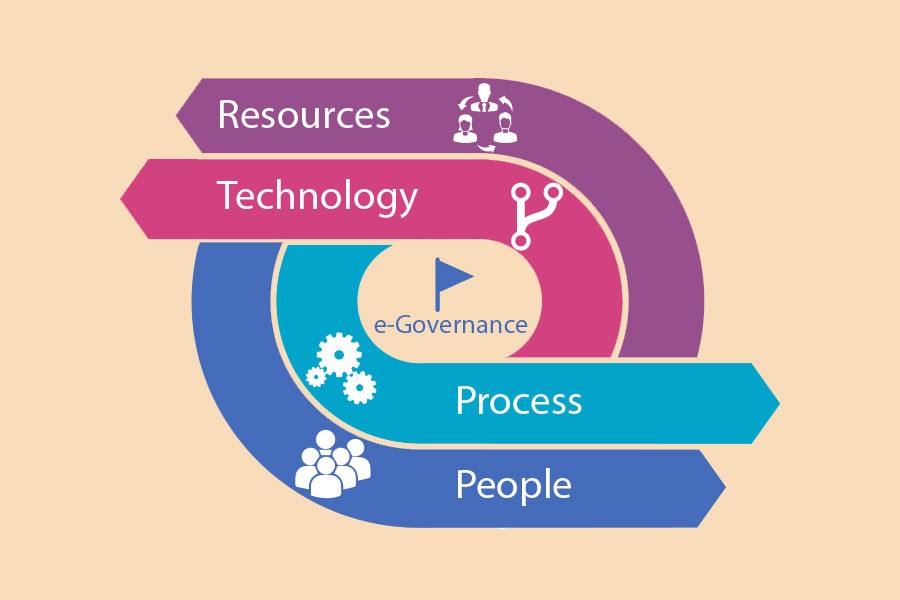Poor ICT infrastructure constrains e-Governance
Survey suggests dedicated body for e-government

Published :
Updated :

The lack of experts and inadequate information and communication technology (ICT) infrastructure are key barriers to implementing e-government programmes, an official survey has revealed.
Other factors include poor campaign on the active usage of e-services.
The findings came in the survey conducted by a project called the formation of e-Government Master Plan for Digital Bangladesh under the Information Communication Technology (ICT) Division.
The survey was conducted among the government officials working in over 100 organisations such as ministries, divisions, and directorates in 2016.
According to the survey, the clear majority or 92 organisations respondents believes there is a necessity to establish a dedicated body for e-Government, while seven disagreed, saying similar Information Technology (IT) projects exist in other ministries.
Most of the respondents also believe the ICT division should be the dedicated organisation to the implementation of e-Government.
Some 85 organisations said the National Data Centre (NDC) should be in charge of e-Government resources management.
Regarding the question whether information links are well-shared with other public organisations in an electronic way, 56 disagreed, whereas 43 agreed, responding there is smooth information-sharing among public agencies.
According to the survey results, most of the respondents (47 per cent) said that the government should implement digital services directly related Government-to-Citizen (G2C) on a priority basis, while 30 per cent preferred the implementation of Government-to-government (G2G) related digital services at first.
Of the rest, 18 per cent prioritised the implementation of government-to-businesses (G2B) related digital services for activating business to enhance national competitiveness, according to the survey.
Funded by Korea International Cooperation Agency (KOICA), the project aims to help Bangladesh successfully deploy e-Government based on the strategies and implementation agendas of the master plan.
The project's short-term objectives are to develop strategies for implementing e-Government and change the Bangladesh government's perception about it.
The project is also designed to follow the strategies for Digital Bangladesh in the medium term and reduce government corruption and improve public services as well as national competitiveness in the long term.
The findings of the survey, as part of the final version of the digital roadmap for e-government project, will be submitted to government offices soon, an official of the ICT division told the FE.
Contacted, president of the Bangladesh Association of Software and Information Services (BASIS) Syed Almas Kabir said there is still a scarcity of skilled ICT experts in the country despite many efforts by the government and the private sector to boost the number.
"I think universities should modernise the academic curriculum to meet the industry needs," said Mr Kabir.
Regarding ICT infrastructure, the BASIS president said poor accessibility of broadband internet is still a great impediment to implementing any digital programme.
"The number of internet users in the country has marked a significant rise in the recent year, but the majority of them are mobile internet users," he added.
saif.febd@gmail.com


 For all latest news, follow The Financial Express Google News channel.
For all latest news, follow The Financial Express Google News channel.